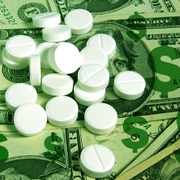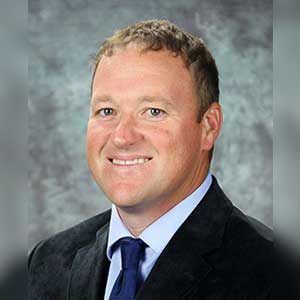Information you need to live a happy, worry-free retirement!
Why Are Some Generics Still So Expensive?

Medicare MarketPlace®? Pharmacy Director Ryan Vlasin answers your questions in our Ask the Pharmacist feature.
ED FROM PHOENIX ASKS: According to my prescription drug plan formulary, my generic medication is considered a Tier 3 Brand. Shouldn’t it be a Tier 1 or Tier 2 since it is generic?
Ryan Answers:
Medicare prescription drug formularies usually assign a drug to one of the following five tiers:
Tier 1: Preferred Generic
Tier 2: Generic
Tier 3: Preferred Brand
Tier 4: Nonpreferred Brand
Tier 5: Specialty
Where a drug is placed within the five tiers usually has more to do with its cost than anything else. If the generic is relatively expensive, it is often a Tier 3 or higher.
Why are some generics so cheap and some very expensive?
When the patent covering a brand name drug expires, generic manufacturers can enter the market. When the patent for Lipitor — the blockbuster brand name for the cholesterol drug atorvastatin — expired, there were many manufacturers offering a generic version. The flood of generic offerings on the market forced the price of generic atorvastatin to drop quickly to well less than 15% of the brand name price.
Sometimes only one manufacturer produces a given generic and the manufacturer may have six months of exclusivity. In this scenario the generic price may stay at about 85% of the brand name price until more competition enters the market.
If no competition enters the market, which is sometimes the case when a medication is difficult or expensive to manufacture, the generic price can stay high for years.
Sometimes generics that have been reasonably priced for a decade or more can suddenly increase in price. This has happened when there are only a couple manufacturers of that specific generic and one leaves the market or is bought out by a competitor.
What can I do to make sure I'm not overpaying for my generic medications?
Make sure you are using the preferred pharmacy for your particular Medicare prescription drug plan, as your co-pays may be significantly lower than those at a standard pharmacy. Depending on the drug plan and the medication, you may also save significantly on your co-pays by using mail order.
When the price of a generic changes suddenly, you can call other pharmacies and inquire about their pricing. Different pharmacies often use different drug wholesalers, and it's possible you can get a better price. Other pharmacies may have a lower contracted price with your insurance company — which can save you money during the deductible phase or when your co-pay is a percentage of the “full cost of drug.”
Don't hesitate to ask for the cash price and compare it to your co-pay in the deductible phase. You may save money paying the cash price and submitting your receipt to the insurance company for reimbursement using a Medicare Part D Prescription Drug claim form.
When comparing different Medicare prescription drug plans, make sure to compare the "full cost of drug" in addition to the co-pays. During the recent Medicare Annual Enrollment Period (AEP), I noticed that certain plans and pharmacies were showing very different "full cost of drug" for recent generics like celecoxib and ezetimibe.
Many blockbuster drugs already have or will soon be available as generics. The prices may drop quickly or slowly, depending on the factors we have discussed.
If you have questions about a generic you're taking and how it will be covered by Medicare, I recommend speaking to an agent who specializes in Medicare and knows the importance of weighing all the factors that affect your out-of-pocket exposure. Call Medicare MarketPlace® to speak to a Licensed Insurance Agent at 1-800-639-0781.

Ryan VlasinPharmacy Director
Confused about your Medicare Part D Prescription Drug coverage?
Ask the Medicare MarketPlace® pharmacist. Email your question to Pharmacy Director Ryan Vlasin at:



